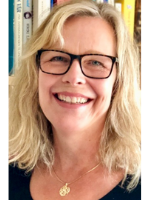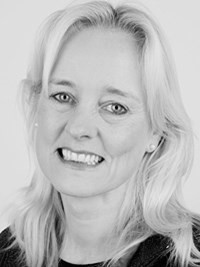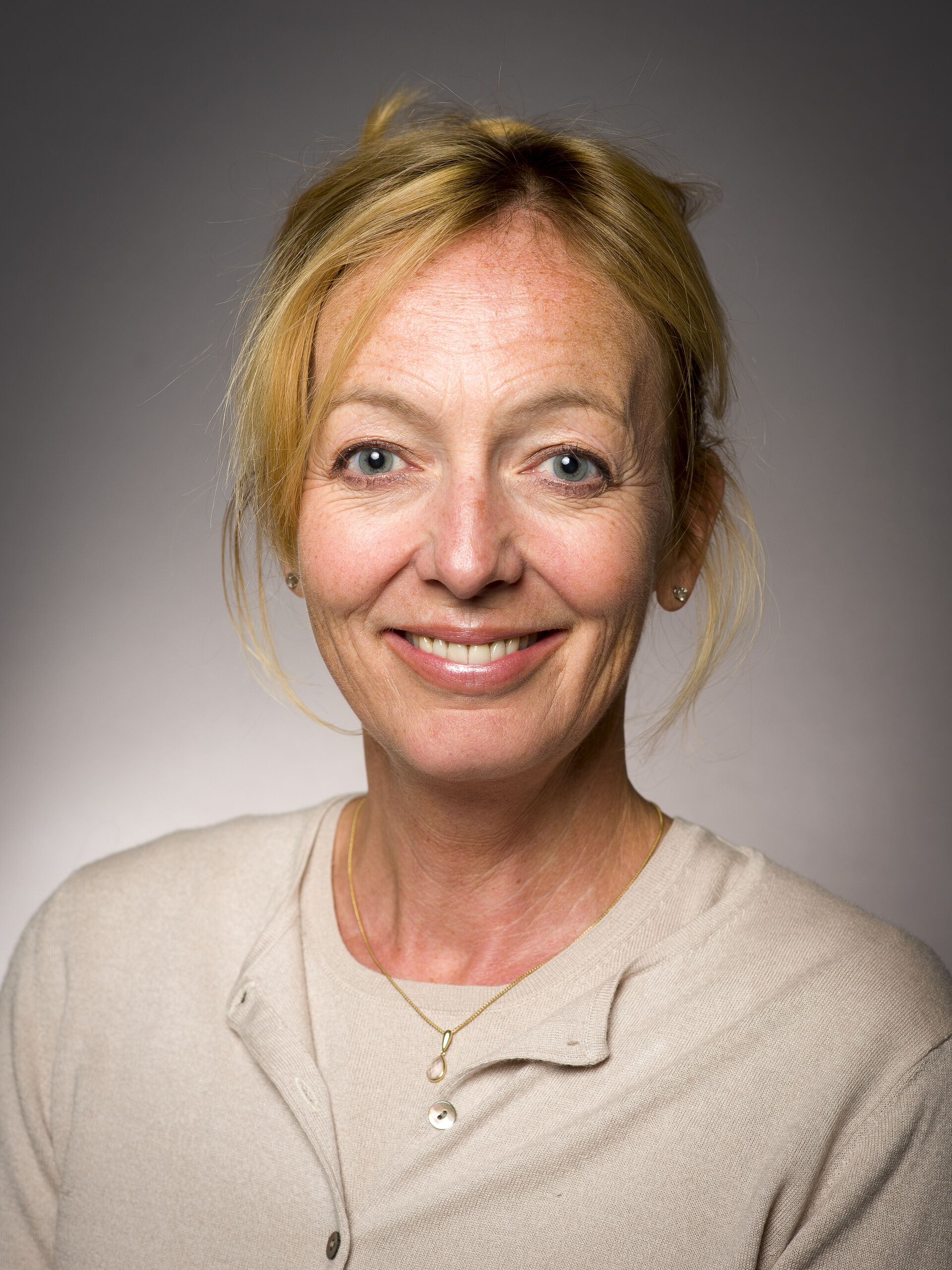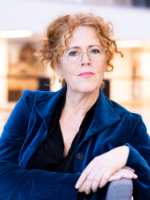In our globalized world, resources and opportunities for good health are unequally distributed across gender, education, ethnicity and wealth, between and within countries. The COVID-19 outbreak has brought this center stage, especially related to gender. So far, the disease more often affects men, whereas the political and economic consequences of the pandemic disproportionally influence the women. Highlighting why the Sustainable Development Goals (SDGs) emboss the interconnectedness of actions needed to advance global health in a sustainable way.
The Centre for Global Health (CGH) acknowledges and adopts sex and gender – that is, biological characteristics as well as social and cultural aspects, as dimensions that must cut across its overall mission to advance capacity for global health research, education and communication.
The CGH will use gender as a crosscutting theme to:
- advance education and learning,
- communicate knowledge advancing the use of gender as a lens,
- increase knowledge of best practice in gender relevant global health research,
- build networks and partnerships accelerating gender advancement,
- empower women in global health leadership and research.
Past Events
1. Menstrual Health: A Global Challenge - A conversation on what role shame and silence might play globally in the context of menstruation health and how these barriers might be tackled in the future - June 2, 2022.
2. The Hidden Challenges for Professional Women - A deep dive into the hidden challenges for professional women in a country (Norway) that is considered one of the most gender equal in the world. What challenges to gender equality remain, and which gender issues lurk under the surface? - March 8, 2022.
3. Gender in Global Health: Community Engagement and Gender Equity - The launch of the Gender in Global Health Crosscutting Theme is celebrated with an online event in collaboration with Women in Global Health Norway and will highlight community gender equity in health efforts across Africa - June 15, 2021.
Launch Event - recording available
Relevant External Activities
Resource Group member, Jeanette H. Magnus presented, Er det på tide med et kjønnsperspektiv på medisinsk behandling? at the Dagens Medisin event, Arena Kvinnehelse - March 16, 2022.
Leader
Kari Nyheim Solbrække
Professor, Department for Interdisciplinary Health Sciences, Faculty of Medicine, University of Oslo (UiO)
 Kari Nyheim Solbrække is trained in sociology and gender studies and has a longstanding experience in interdisciplinary health sciences and education aiming for equitable distribution of power, privileges and priorities in relation to gender and health. She teach courses and supervise at postgraduate level and PhD in medicalization, health and social inequality, gender perspectives on illness and health, qualitative research design, methods and analyses. Solbrække has had several positions of trust related to the field of gender studies such as Head of board at the Centre for Gender Research (STK) at the University of Oslo and President of the Norwegian Association for Gender Research. Following her strong engagement in gender and health, Solbrække is currently involved in the global capacity-building program in Africa and Ethiopia as PhD supervisor as well as instructing academic staff in how Enhancing Gender in Science and Education. Solbrække is a member of the Advisory Group to the Norwegian chapter of Women in Global Health.
Kari Nyheim Solbrække is trained in sociology and gender studies and has a longstanding experience in interdisciplinary health sciences and education aiming for equitable distribution of power, privileges and priorities in relation to gender and health. She teach courses and supervise at postgraduate level and PhD in medicalization, health and social inequality, gender perspectives on illness and health, qualitative research design, methods and analyses. Solbrække has had several positions of trust related to the field of gender studies such as Head of board at the Centre for Gender Research (STK) at the University of Oslo and President of the Norwegian Association for Gender Research. Following her strong engagement in gender and health, Solbrække is currently involved in the global capacity-building program in Africa and Ethiopia as PhD supervisor as well as instructing academic staff in how Enhancing Gender in Science and Education. Solbrække is a member of the Advisory Group to the Norwegian chapter of Women in Global Health.
Resource Group
The resource group will support the leader in advancing the CGH's ambitions for gender as a crosscutting integrated theme.
Anne Bergh
Director for Global Health, Norwegian Institute of Public Health (NIPH)
 Anne Bergh has an extensive background from international collaboration, public health and development issues, programme development, strategy formulation and leadership, including 10 years for the Red Cross in Oslo and Geneva. Bergh has held leadership positions in global health and migration issues at the Norwegian Institute of Public Health since 2007. She has also been engaged as Senior Advisor at the International Law and Policy Institute and had a one-year post as Director of the armed forces museums in Norway. Bergh holds an MA (Cand.Phil) in history of religion from the University in Oslo and has senior executive training from the Norwegian Defence University College. Bergh is employed as Director for global health, leading the institute’s cluster for global health, and the institute’s crosscutting global health committee. Bergh is a board member of the University of Oslo’s Centre for Global Health and a member of the advisory group to the Norwegian chapter of Women in Global Health. From May to December 2021, Bergh has been temporarily assigned to the Norwegian Ministry of Health and Care Services, working on international processes.
Anne Bergh has an extensive background from international collaboration, public health and development issues, programme development, strategy formulation and leadership, including 10 years for the Red Cross in Oslo and Geneva. Bergh has held leadership positions in global health and migration issues at the Norwegian Institute of Public Health since 2007. She has also been engaged as Senior Advisor at the International Law and Policy Institute and had a one-year post as Director of the armed forces museums in Norway. Bergh holds an MA (Cand.Phil) in history of religion from the University in Oslo and has senior executive training from the Norwegian Defence University College. Bergh is employed as Director for global health, leading the institute’s cluster for global health, and the institute’s crosscutting global health committee. Bergh is a board member of the University of Oslo’s Centre for Global Health and a member of the advisory group to the Norwegian chapter of Women in Global Health. From May to December 2021, Bergh has been temporarily assigned to the Norwegian Ministry of Health and Care Services, working on international processes.
Hely Katariina Laine
Associate Professor, Obstretrics and Gynecology, Faculty of Medicine
 Ms. Katariina Laine is an Obstetrician-gynaecologist with a long working history as a clinician. She is now a Senior Researcher in the Norwegian Research Centre for Women’s Health in The Oslo University Hospital and an Associate Professor in University of Oslo. Her research topics are: maternal birth injuries (anal sphincter injury and anal incontinence) and adverse outcomes in pregnancy and childbirth (stillbirth, preterm birth, preeclampsia, complications in post term pregnancy); education and training to improve patient safety and reduce complications during childbirth.
Ms. Katariina Laine is an Obstetrician-gynaecologist with a long working history as a clinician. She is now a Senior Researcher in the Norwegian Research Centre for Women’s Health in The Oslo University Hospital and an Associate Professor in University of Oslo. Her research topics are: maternal birth injuries (anal sphincter injury and anal incontinence) and adverse outcomes in pregnancy and childbirth (stillbirth, preterm birth, preeclampsia, complications in post term pregnancy); education and training to improve patient safety and reduce complications during childbirth.
Ingeborg K. Haavardsson
Leader, Women in Global Health Norway & Managing Director, Centre for Global Health, University of Oslo (UiO)

Ingeborg K. Haavardsson is a management and communication specialist, with over 25 years of management and event experience on international development and research related questions. Since 2016, she is the Managing Director for the Centre for Global Health (CGH) at the University of Oslo. She is the leader of Women in Global Health Norway, hosted by CGH. Previous experience: Information Director (1999-2005) then Special Advisor for External Relations (2005-2016) at the Peace Research Institute Oslo (PRIO). Instrumental in building up the Peace Research Endowment, an independent unit in the USA. She has worked for the Norwegian Church Aid and the Norwegian Directorate of Immigration.M.A. in International Conflict Analysis from the University of Canterbury, Kent, UK. Undergraduate studies (French, History, Comparative Politics) from the University of Oslo and the University of Bergen.
Inger Skjelsbæk
Director & Professor, Center for Gender Research (STK), University of Oslo (UiO)
 Inger Skjelsbæk is Professor at the Center for Research on Extremism (C-REX) at the University of Oslo (UiO). aShe is Research Professor at the Centre for Gender, Peace and Security at the Peace Research Institute Oslo (PRIO), where she was Deputy Director (2009 - 2015). Skjelsbæk holds a PhD in political psychology from the Norwegian University for Technology and Science (NTNU). She has been a visiting research fellow at University of California, Berkeley (USA) and the London School of Economics (UK). Her research focuses on gender, political violence, norms, the Balkans, qualitative research methods and ethics. In the period 2021 – 2026, she will lead the ERC project "Innocent Children or Security Threats? European Children Born of War (EuroWARCHILD)". Skjelsbæk is also a deputy member of the Norwegian Nobel Peace Price Committee.
Inger Skjelsbæk is Professor at the Center for Research on Extremism (C-REX) at the University of Oslo (UiO). aShe is Research Professor at the Centre for Gender, Peace and Security at the Peace Research Institute Oslo (PRIO), where she was Deputy Director (2009 - 2015). Skjelsbæk holds a PhD in political psychology from the Norwegian University for Technology and Science (NTNU). She has been a visiting research fellow at University of California, Berkeley (USA) and the London School of Economics (UK). Her research focuses on gender, political violence, norms, the Balkans, qualitative research methods and ethics. In the period 2021 – 2026, she will lead the ERC project "Innocent Children or Security Threats? European Children Born of War (EuroWARCHILD)". Skjelsbæk is also a deputy member of the Norwegian Nobel Peace Price Committee.
Jeanette H. Magnus
Director, Centre for Global Health, University of Oslo (UiO)
 Jeanette H. Magnus is former Head of Institute of Health and Society, Faculty of Medicine, University of Oslo, Norway, former Chair and tenured Professor, current Adjunct Professor, Department of Global Community Health and Behavioural Sciences at the Tulane School of Public Health and Tropical Medicine, New Orleans, USA. Magnus worked with Tulane University for 12 years. She is trained as a rheumatologist with MD and PhD from University of Tromsø in Norway. She has more than 130 peer-reviewed publications in chronic disease, minority health, social determinants of health, sex and gender differences. She has a keen interest in academic capacity development in education and research. Magnus has extensive experience coordinating projects that involve capacity development in education and research, and include scientists and practitioners with different backgrounds. She has developed and led courses, workshops and seminars in leadership, women’s health, and sex and gender differences. Magnus is Associate Editor of Journal of Biology of Sex Differences, and Editorial Board Member of Journal of Women’s Health and Gender Based Medicine (2006- ), Biology of Sex Differences (2010- ), Ethiopian Journal of Health Sciences (2016-), and Journal of Women’s Health Report (2019- ).
Jeanette H. Magnus is former Head of Institute of Health and Society, Faculty of Medicine, University of Oslo, Norway, former Chair and tenured Professor, current Adjunct Professor, Department of Global Community Health and Behavioural Sciences at the Tulane School of Public Health and Tropical Medicine, New Orleans, USA. Magnus worked with Tulane University for 12 years. She is trained as a rheumatologist with MD and PhD from University of Tromsø in Norway. She has more than 130 peer-reviewed publications in chronic disease, minority health, social determinants of health, sex and gender differences. She has a keen interest in academic capacity development in education and research. Magnus has extensive experience coordinating projects that involve capacity development in education and research, and include scientists and practitioners with different backgrounds. She has developed and led courses, workshops and seminars in leadership, women’s health, and sex and gender differences. Magnus is Associate Editor of Journal of Biology of Sex Differences, and Editorial Board Member of Journal of Women’s Health and Gender Based Medicine (2006- ), Biology of Sex Differences (2010- ), Ethiopian Journal of Health Sciences (2016-), and Journal of Women’s Health Report (2019- ).
Linda Marie Rustad
Director, Kilden // genderresearch.no
 Linda Marie Rustad holds a MA in philosophy on feminist theory of science from the Norwegian University of Science and Technology. Kilden genderresearch.no is a national knowledge centre of gender perspectives and gender balance in research. . Rustad is actively engaged in Nordic, European and International cooperation on gender research and gender equality in research. She has worked at Centre for Gender Research at the University of Oslo, Norway and written several articles in feminist theory. Rustad headed the secretariat for the Norwegian Committee for gender balance and diversity in research (x-x). She has worked in the Norwegian Development Cooperation Agency (NORAD), where she was responsible for integrating gender equality in a program for capacity building of research institutions in the Global South (NORHED). She has experience from leadership training and developed courses for gender equality officers in the research sector and has written a booklet to be used in such trainings. She is co-author of the booklet “What is the gender dimension in research?” and participated in several EU-projects such as GENDER-NET, GENDER-NET+ and GEacademy.
Linda Marie Rustad holds a MA in philosophy on feminist theory of science from the Norwegian University of Science and Technology. Kilden genderresearch.no is a national knowledge centre of gender perspectives and gender balance in research. . Rustad is actively engaged in Nordic, European and International cooperation on gender research and gender equality in research. She has worked at Centre for Gender Research at the University of Oslo, Norway and written several articles in feminist theory. Rustad headed the secretariat for the Norwegian Committee for gender balance and diversity in research (x-x). She has worked in the Norwegian Development Cooperation Agency (NORAD), where she was responsible for integrating gender equality in a program for capacity building of research institutions in the Global South (NORHED). She has experience from leadership training and developed courses for gender equality officers in the research sector and has written a booklet to be used in such trainings. She is co-author of the booklet “What is the gender dimension in research?” and participated in several EU-projects such as GENDER-NET, GENDER-NET+ and GEacademy.
